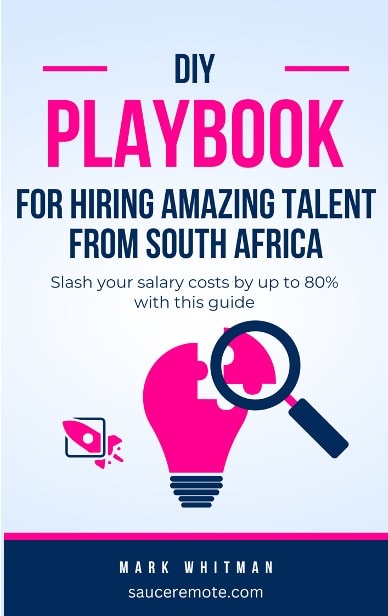PEO vs HRO: Deciding between these two HR solutions can be tricky. It’s crucial to choose the right fit for your business.
Whether you’re looking for comprehensive HR support or just need help with specific tasks, understanding the differences between PEOs and HROs will help you make the best decision.
Join me as I look at the benefits, costs and services offered by PEOs and HROs.
Ready? Let’s roll.
PEO vs HRO: Everything You Must Know
Here’s a brief table showing the key differences between a PEO and HRO.
Feature | PEO (Professional Employer Organisation) | HRO (Human Resources Outsourcing) |
|---|---|---|
Scope of Services | Comprehensive HR outsourcing, including payroll, benefits, compliance, and more. | Customisable HR services based on your specific needs. |
Control & Flexibility | Less control over day-to-day HR functions due to co-employment. | Greater control, with flexibility to choose which services to outsource. |
Cost Structure | Typically charges a flat fee per employee or a percentage of payroll. | À la carte pricing model—pay only for the services you use. |
Risk & Liability | Shares legal responsibilities and risks with your company. | Your company retains most legal risks and responsibilities. |
Best For | Small to mid-sized businesses needing full-service HR support. | Larger companies or those with specific HR needs and internal HR teams. |
Ready for a more in-depth exploration? Great. Let’s start by looking at what a PEO is and how it operates.
What is a PEO?
A PEO (Professional Employer Organisation) is like an all-in-one HR partner for your company.
Think of it as a co-employer who shares the HR load, handling everything from payroll and benefits to compliance and risk management.
They take on many of the day-to-day HR tasks that can eat up your time, so you can focus on what really matters—growing your business.
With a PEO, your company gains access to top-notch HR services without having to build an in-house team.
They’ll manage things like employee benefits, tax filings and even help ensure you’re up-to-date with labour laws.
In short, a PEO is your go-to solution for full-service HR support, making your life a whole lot easier.
What Are the Benefits of a PEO?
Choosing a PEO isn’t just about offloading HR tasks—it’s about giving your company an edge. Here’s how:
1. Full-Service HR Outsourcing
When you partner with a PEO, you’re essentially bringing on board a team of HR experts.
They handle everything from payroll and tax administration to employee onboarding and training.
It’s like having an entire HR department without the overhead costs. This means you can focus on your core business, knowing that your HR needs are fully covered.
2. Shared Legal Responsibilities
PEOs don’t just manage your HR—they share the legal responsibilities with you.
A PEO’s “co-employment” model means they help shoulder the burden of compliance with labour laws and regulations.
If you’ve ever worried about staying compliant with constantly changing laws, a PEO has your back, reducing your legal risks.
3. Employee Benefits and Compliance Support
Offering competitive benefits is a must if you want to attract and retain top talent.
A PEO can pool together small and mid-sized businesses to provide access to big-company benefits like health insurance, retirement plans, and more.
Plus, they keep you compliant with the latest healthcare regulations and tax laws, so you’re always in the clear.

Discover how to slash your salary costs by 80%
Get our exact process for hiring amazing overseas talent from South Africa. Includes copy-and-paste templates and a detailed salary guide.
Who is a PEO Best For?
Not every business needs a PEO, but if you’re a small to mid-sized company, this might just be the perfect fit for you.
A PEO is ideal for businesses that are growing and need comprehensive HR support but don’t have the resources—or the time—to build a full-fledged HR department.
Maybe you’re juggling payroll, benefits, compliance, and employee relations all at once.
A PEO can take that load off your shoulders, letting you focus on scaling your business rather than getting bogged down in HR details.
If your company is expanding, you’re hiring more people, or you’re simply looking to offer better benefits to attract top talent, a PEO could be a game-changer.
What is an HRO?
Human Resources Outsourcing, or HRO, is like picking and choosing from a menu of HR services, just the way your business needs them.
Unlike a PEO, which takes on a more comprehensive role, an HRO offers a flexible approach to HR management.
With HRO, you’re not entering a co-employment relationship. Instead, you’re outsourcing specific HR functions—whether it’s payroll processing, benefits administration, recruitment, or compliance.
This allows your company to maintain more control over its HR processes while still getting expert help where you need it most.
HROs are perfect for businesses that already have an internal HR team but need extra support in certain areas.
Hire remote talent from South Africa & slash salary costs by 80%
Salaries start from £8,000 per year!
What Are The Benefits of an HRO?
Choosing an HRO gives your company the flexibility to tailor HR services to fit your specific needs. Here’ are some more benefits of working with an HRO:
1. Customisable HR Services
With an HRO, you’re in the driver’s seat. You can pick and choose the HR services that make the most sense for your business.
Need help with recruiting but have payroll covered?
Or maybe you want expert advice on compliance without handing over your employee relations?
An HRO lets you customise your HR support exactly how you want it.
2. Flexibility in Choosing Services
HROs offer the flexibility to adjust your services as your business evolves.
You can scale up or down based on your current needs, which is perfect for businesses that experience seasonal changes or rapid growth.
This adaptability ensures you’re never paying for services you don’t need and can easily add on support when required.
3. Often Used by Larger Businesses or Those with Internal HR Teams
HROs are a popular choice for larger companies or businesses that already have an HR team in place.
If your in-house HR team is stretched thin or if you need specialised expertise in certain areas, an HRO can provide additional support without completely outsourcing all HR functions.
It’s about enhancing what you already have and filling in the gaps.
Hire remote talent from South Africa & slash salary costs by 80%
Salaries start from £8,000 per year!
Who is an HRO Best For?
An HRO isn’t a one-size-fits-all solution, but for some companies, it’s the perfect match.
So, who should consider going the HRO route?
HROs are best suited for larger companies or businesses with specific HR needs that go beyond what their current team can handle.
If your company already has an in-house HR team but they’re stretched thin or dealing with specialised tasks that require extra expertise, an HRO can provide that targeted support.
It’s also a great option for businesses that want to retain control over most of their HR functions but need a little extra help in certain areas—whether it’s compliance, recruitment, or benefits administration.
In short, if you need flexibility and targeted assistance, an HRO is likely the right choice for you.
Hire remote talent from South Africa & slash salary costs by 80%
Salaries start from £8,000 per year!
PEO vs HRO: Key Differences
Choosing between a PEO and an HRO isn’t always easy, but understanding the key differences can help you make the best decision for your business.
Let me break it down for you:
1. Scope of Services
When it comes to the range of services, PEOs and HROs operate quite differently.
A PEO offers full-service HR outsourcing, meaning they manage virtually every aspect of HR—from payroll and benefits to compliance and employee relations.
It’s like having an entire HR department on standby.
On the other hand, an HRO provides a more flexible approach.
You get to pick and choose which HR services you want to outsource, whether it’s just payroll, benefits administration, or another specific function.
This makes HROs ideal for businesses that already have some HR capabilities but need support in certain areas.
2. Control and Flexibility
One of the biggest differences between a PEO and an HRO is the level of control you retain.
With a PEO, you enter into a co-employment relationship, meaning the PEO shares many of the HR responsibilities, and as a result, your control over some HR functions may be more limited.
In contrast, an HRO offers more flexibility and allows you to maintain greater control over your HR processes.
You decide which tasks to outsource and keep the rest in-house, giving you the ability to tailor HR functions to your business’s specific needs.
3. Cost Structure
When it comes to costs, PEOs typically charge a flat fee per employee or a percentage of your payroll. This all-inclusive model can be cost-effective for smaller businesses that need comprehensive HR services.
HROs, however, usually offer a more à la carte pricing model, where you pay for the specific services you need.
This can be more cost-effective for larger businesses or those with fluctuating HR needs, as you’re not paying for services you don’t use.
4. Risk and Liability
Risk management is another area where PEOs and HROs differ significantly.
A PEO takes on a larger share of legal risks and liabilities through the co-employment model.
They help ensure compliance with employment laws and regulations, which can be a huge relief for business owners.
On the other hand, with an HRO, your business retains most of the legal risks and responsibilities.
The HRO provides support and advice, but the ultimate responsibility for compliance and legal matters remains with your company. This means more control, but also more accountability.
Hire remote talent from South Africa & slash salary costs by 80%
Salaries start from £8,000 per year!
How to Choose: PEO or HRO?
Deciding between a PEO and an HRO is a big decision, but breaking it down into a few key considerations can help you make the best choice for your business. Here’s what to think about:
1. Assess Your Business Needs
Start by taking a hard look at what your business actually needs from HR outsourcing.
Are you looking for comprehensive HR support to handle everything from payroll to compliance?
Or do you just need a bit of help with specific tasks, like benefits administration or recruitment?
If you need an all-in-one solution, a PEO might be your best bet. If you prefer a more flexible, à la carte approach, then an HRO could be the right fit.
2. Budget Considerations
Your budget plays a crucial role in this decision.
PEOs typically offer a flat fee or percentage of payroll, which can be cost-effective for smaller businesses looking for full-service HR.
On the other hand, HROs allow you to pay only for the services you need, which might be more budget-friendly if you’re a larger company or have varying HR needs.
Align your choice with what your business can comfortably afford while still meeting your HR goals.
3. Growth Stage
Where your business is in its growth journey also matters.
If you’re a small to mid-sized business poised for growth, a PEO can provide the comprehensive support needed to scale efficiently.
However, if your business is larger and more established, with an internal HR team in place, an HRO’s flexibility might be more appealing.
Consider what stage your business is at and where you see it heading.
4. Consultation
Finally, don’t make this decision in isolation.
Consulting with HR professionals can give you valuable insights tailored to your specific situation.
They can help you evaluate your current HR processes, identify gaps, and recommend whether a PEO or HRO would better serve your needs.
It’s always worth getting expert advice before making a final decision.
